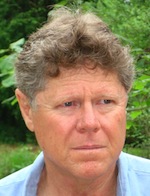Eight years ago, he was the ubiquitous face of scientific inquiry into the catastrophic floods that followed Hurricane Katrina, the tousle-haired marine scientist with the strong South African accent.
Network and cable news shows couldn’t get enough of Ivor van Heerden. When not providing TV commentary, he tirelessly fielded hundreds of inquiries a day from print journalists around the world (including me), led groups into the ruins of the city and published a book, “The Storm,” on his findings. He was appointed leader of Team Louisiana, the state-level effort to learn from the New Orleans disaster and avert a recurrence.
He probably raised Louisiana State University’s academic profile higher than any member of the faculty since poet and novelist Robert Penn Warren was encamped there in the 1930s.
And where is van Heerden today? Jobless and dispirited, he lives with his wife in a trailer alongside the home outside Baton Rouge that they are trying to sell. His life and his career are on hold as he awaits trial of his federal lawsuit against LSU, now scheduled for Feb. 19.
As a director of the university’s Hurricane Center and faculty member of the Department of Civil and Environmental Engineering, van Heerden had helped develop the computer models for storm surge that proved horrifyingly accurate during Katrina. Within weeks of the storm he had assembled proof that the U.S. Army Corps of Engineers was wrong, if not deceitful, to claim that the levee system around New Orleans had collapsed because it was overtopped by a storm bigger than it was meant to handle.
In fact, the city’s flood defense had been poorly designed and badly built—by many accounts, the worst engineering failure in U.S. history. Van Heerden’s postmortem showed that levees were breached and many floodwalls collapsed well before flood waters had risen to the levels it was supposed to withstand, a position to which the Corps eventually capitulated, but not for a year.
Van Heerden’s troubles had begun within a very few weeks of Katrina. Worried that the outspoken researcher would make an enemy of the Army Corps and other sources of federal research funds, LSU vice chancellors tried to gag him. Forbidden to speak in the name of LSU, van Heerden invoked his rights as a private citizen and continued to speak anyway.
LSU then tried to discredit his scholarship and credentials, saying a marine scientist was unqualified as a hurricane expert (the capacity in which the state had been paying him for years). As reported in my book on Katrina, when the university tried to topple him as Team Louisiana’s leader, the governor insisted on his reinstatement.
LSU’s final salvo was to warn that if he testified as an expert witness in any of the various class action lawsuits spurred by failure of the federal levee system, he would be fired. Van Heerden testified anyway, under subpoena. LSU did indeed fire him, and he fired back with his lawsuit.
Van Heerden’s pugnacity may be genetic. The son of white civil servants who stood up against apartheid, he mined diamonds for a while on the ocean bottom and then sailed to America on a small sloop.
To the American Association of University Professors, which has rallied to van Heerden’s cause, LSU has clearly infringed both academic freedom and van Heerden’s First Amendment right to free speech. In his 18 years as a researcher at LSU, despite a singular ability to attract major funding, van Heerden, now 62, had never been tenured. He mistook positive reviews by colleagues and students for an informal guarantee that his year-to-year contracts would be renewed indefinitely.
LSU has been successful in dismissing some of the charges leveled against the university in van Heerden’s lawsuit. But the plaintiff has been upheld on the two most important principles undergirding his case: the First Amendment and the protections to which he is entitled as a whistleblower.
The university had tried to counter the First Amendment argument by citing Garcetti, the U.S. Supreme Court ruling that says it does not cover speech by public employees “pursuant to their official duties.” In his ruling, presiding Judge James Brady of Louisiana’s Middle District drew LSU’s attention to the part of Supreme Court ruling that says it does not necessarily apply to “speech related to scholarship or teaching.” (It’s appalling, however, that the Supreme Court left open the door to a future ruling that could deny First Amendment rights even to teachers.) And as regards Louisiana’s Whistleblower Act, Brady asserted, “A reasonable fact finder could conclude that defendants retaliated against plaintiff in violation” of it.
Part of LSU’s defense has been that the core mission of the College of Engineering is limited to teaching, an assertion flatly contradicted by the university’s efforts in recent years to boost itself into the ranks of major research institutions and its embrace of public service as one of its core missions. Something is wrong.
Journalists and members of the LSU community who are aware of the ongoing persecution are disgusted and somewhat mystified that the university has chosen to go after van Heerden, rather than quietly settle this shameful case. It seems especially odd in light of the state’s increasing vulnerability to catastrophic storms and van Heerden’s proven expertise in anticipating their wrath—not to mention the high cost of protracted litigation as Gov. Bobby Jindal makes devastating cuts to the university’s budget.
With the matter in litigation, LSU won’t comment. Perhaps the administration’s calculus is that it has nothing left to lose. It has already disgraced itself internationally by pandering to the corps and standing so stridently in opposition to a faculty researcher’s right to speak freely. But you might think that by now they’d want this case to go away just as ardently as van Heerden does. With the trial looming, it’s long past time for LSU to get over itself and settle with a notable employee whose rights have been abused.


